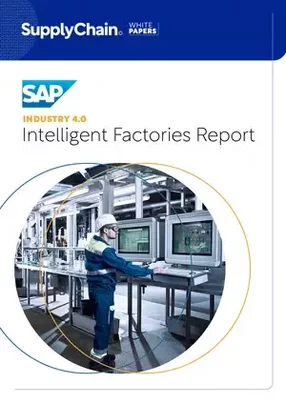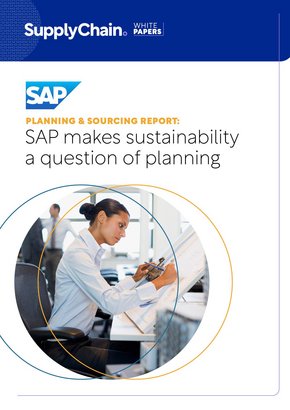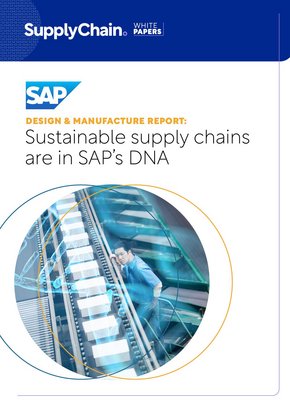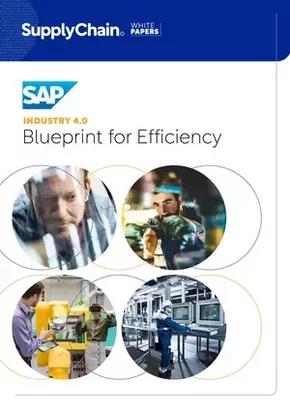The manufacturing sector has pioneered global shifts in commerce and trade since the first industrial revolution brought affordable consumer products to the masses. Automation, a commonplace feature in factories and production plants for generations, increased efficiency, delivered better value to stakeholders and customers alike, and placed safety at the forefront of the workplace. Today, assailed on all sides by the global disruption of a prevailing pandemic, regionalised geopolitical complexity including Brexit or trade wars, and customer demands that can shift with the wind, manufacturers stand on the digital transformation of Industry 4.0, the next seismic shift.
Positioned at the centre of this industry shift is the Intelligent Factory, a self-optimising, data-driven strategy that will define the future of manufacturing and production. Agile enough to overcome unforeseen disruption and prescriptive enough to drive and shape the direction of consumer habits and expectations, Intelligent Factories promise to revolutionise the quality, customisation and speed of delivery in everything from specialist medical equipment to consumer running shoes.
The result is an industry that realises change is a necessity rather than a means to a competitive edge. “All of our customers have initiatives that are looking at how they're going to change for the future,” says Mike Lackey, Global Head of Solution Management for Digital Manufacturing at SAP.
Lackey is at the forefront of SAP’s Intelligent Factory initiative, driving agility, efficiency and resilience, to deliver on the customer demands of today.
Here he explores the benefits this model brings to efficiency, resilience, and agility, and outlines how SAP is guiding businesses through their digital transformation journey to future growth and innovation.
The intelligent future of manufacturing
SAP’s Mike Lackey explores the benefits Intelligent Factories bring to efficiency, resilience, and agility, and how SAP is guiding businesses through their digital transformation journey to future growth and innovation
In light of global disruption and shifting customer demand, the manufacturing sector finds itself faced with too many questions and not enough answers. The solution is Intelligent Factories, says Mike Lackey, Global Head of Solution Management for Digital Manufacturing at SAP. Rather than promising a one-size-fits-all solution, the model is infinitely configurable and as varied as the business cases and disruptions it aims to solve.
Lackey describes the system as “self optimising”. Driven by data, the Intelligent Factory can react to immediate issues, as well as improving over time to minimise disruption and boost efficiency in the long term.
“As the factory is producing more intelligent products, and as it incorporates more intelligent assets, you’re able to collect more data than ever before,” Lackey explains. “But it’s not just about more data, it’s about looking at the real data that impacts the business and acting upon it. To bring cost, customer, and supplier data all down to the shop floor, that’s what we mean by the Intelligent Factory.”
Intelligence in the pandemic era
The COVID-19 pandemic has been an eye-opening experience for business leaders, accelerating the rate of change across all industries. Though the global outbreak is the most extreme circumstance, manufacturers are all too familiar with the disruption of global events beyond their control. Geopolitical upheaval such as Brexit and global trade wars brought their own set of complications to the sector in 2020, while earthquakes, tsunamis and other natural disasters can be equally damaging, as evidenced in the ongoing shortage of semiconductor chips.
In these situations, demand can fluctuate between 400% capacity down to 50% capacity, or more. WithIndustry 4.0, businesses are able to consolidate their entire global operation, shifting production on a global-level.
“Wherever operations are based, whether Asia, Europe or North America, businesses cannot look at each plant as a single silo. They must look at all plants in their global operation, for instance, and how best to leverage those to deliver on all their customer demand. By building standardisation and intelligence into those plants, they can understand where to move production. They can see the impact on their business.”
Lackey considers the prevailing congestion in global ocean freight and shipping, and whether flying goods could be a suitable alternative. “That adds an exponential cost, but by bringing all of that data together, professionals can clearly assess what the impact will be on the business, on profitability, and on the actual ability to deliver. All that data together gives them the ability to make the decisions to best support their customers.
Rise of the Intelligent Consumer
With more information at their fingertips than ever before, the intelligent consumer is another major force acting upon manufacturing. Demand for more personalised products is growing at both an enterprise and consumer level, alongside expectations that they are produced from sustainably sourced materials, and delivered in a time frame of their choosing. Responding to that demand will be critical for growth, says Lackey:
“They’re willing to pay for that level of customisation,” Lackey says. “And the companies that are offering that level of customer service, that are customer driven and are making decisions based on data-driven information, are the ones that are going to succeed. When you start going from mass production to mass customisation, though, you still have to hit volumes. There’s still a production plan to adhere to, and high quality standards - all of which must be delivered with the resources on hand. Bringing intelligence to the process allows manufacturers to respond faster and achieve these outcomes.”
Here Intelligent Factories come into their own. Quality control at every step of the process creates a virtuous feedback loop, empowering employees and leveraging data to eradicate missteps sooner, rather than as a reactionary step. AI and ML technologies which “can see more than the human eye” can automate this process, freeing humans to spend time on value-add tasks.
“The result is more quality throughout the entire system,” Lackey says. “You’re demanding more quality from your suppliers, more quality from the design phase, and you have better visibility into your planning. That makes everything that comes together on the shop floor even stronger, and the quality level goes up exponentially.”
Intelligence powered by SAP
Intelligent Factories is, in many ways, the culmination of SAP’s industry defining Industry 4.0 initiative: operated by Empowered People, leveraging Intelligent Assets, to produce Intelligent Products.
“We’re tying everything in to digital supply chain, how assets are managed, the OEB, and keeping machines running at 99.9% uptime and efficiency. SAP is also bringing in the environmental and sustainability concerns, ensuring we know if the materials are sustainably sourced and processed, the carbon footprint of the factory, and what that means to corporate compliance reporting. And then there’s health and safety, guaranteeing workers are operating safely. And SAP brings that all together.
“The innovation that we're delivering can take our customers through that entire journey, fully integrated through end-to-end business processes,” Lackey says. "We're delivering value with all the assets and the innovation and the applications you need for digital transformation that is connected through your supply chain. And that's a big win for our customers when they have the agility and resilience to respond to changing customer demand eliminating waste and complexity.”
- The Art of Supply Chain Planning with Gartner, SAP, KinaxisSupply Chain Risk Management
- Why SAP Supply Chain Solutions Could Transform ManufacturingTechnology
- Why Ericsson Chose SAP to Enhance Supply Chain EfficienciesTechnology
- SAP’s Mike Wade on the Pace of Digital Supply Chain ChangeDigital Supply Chain




